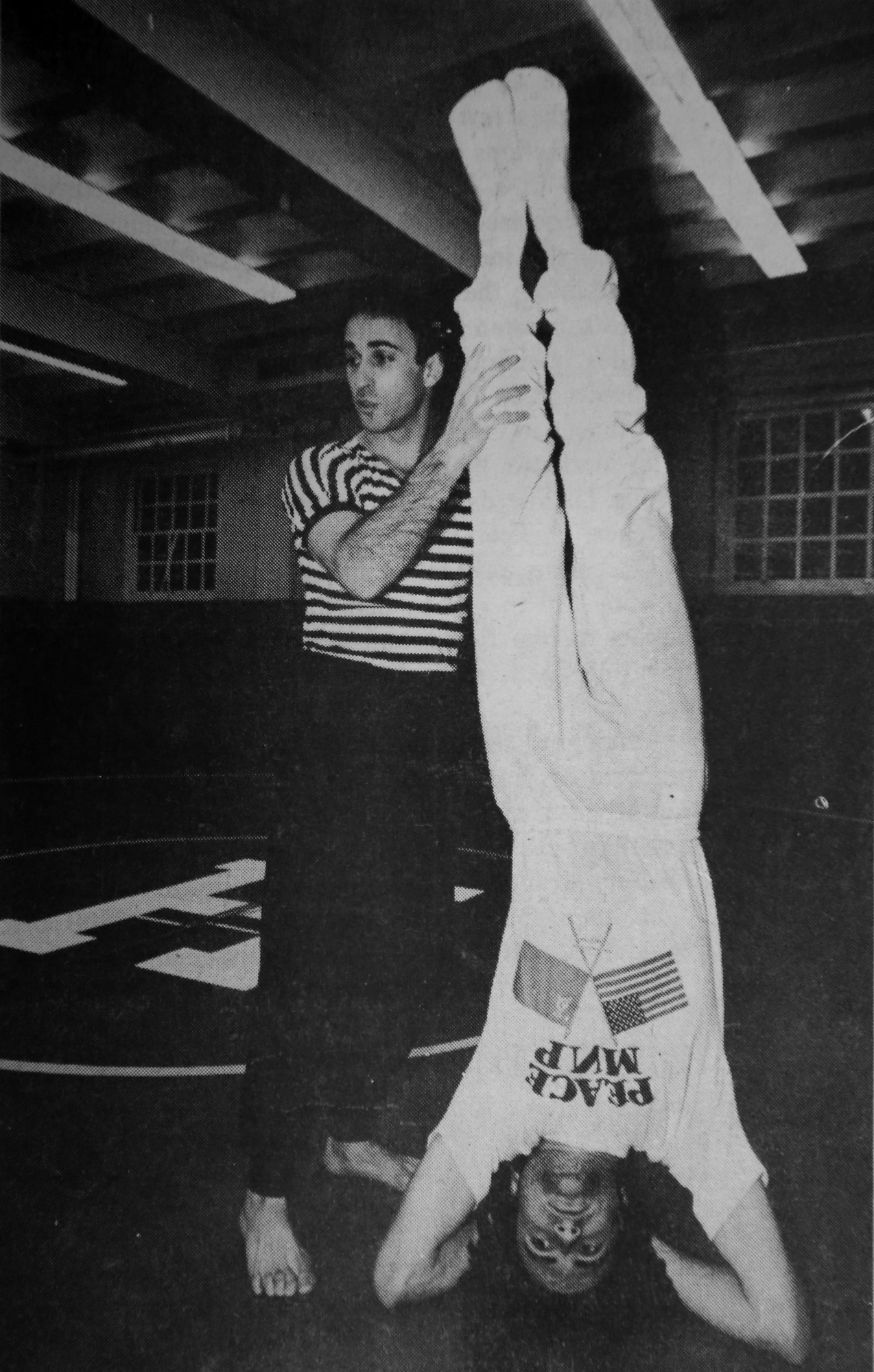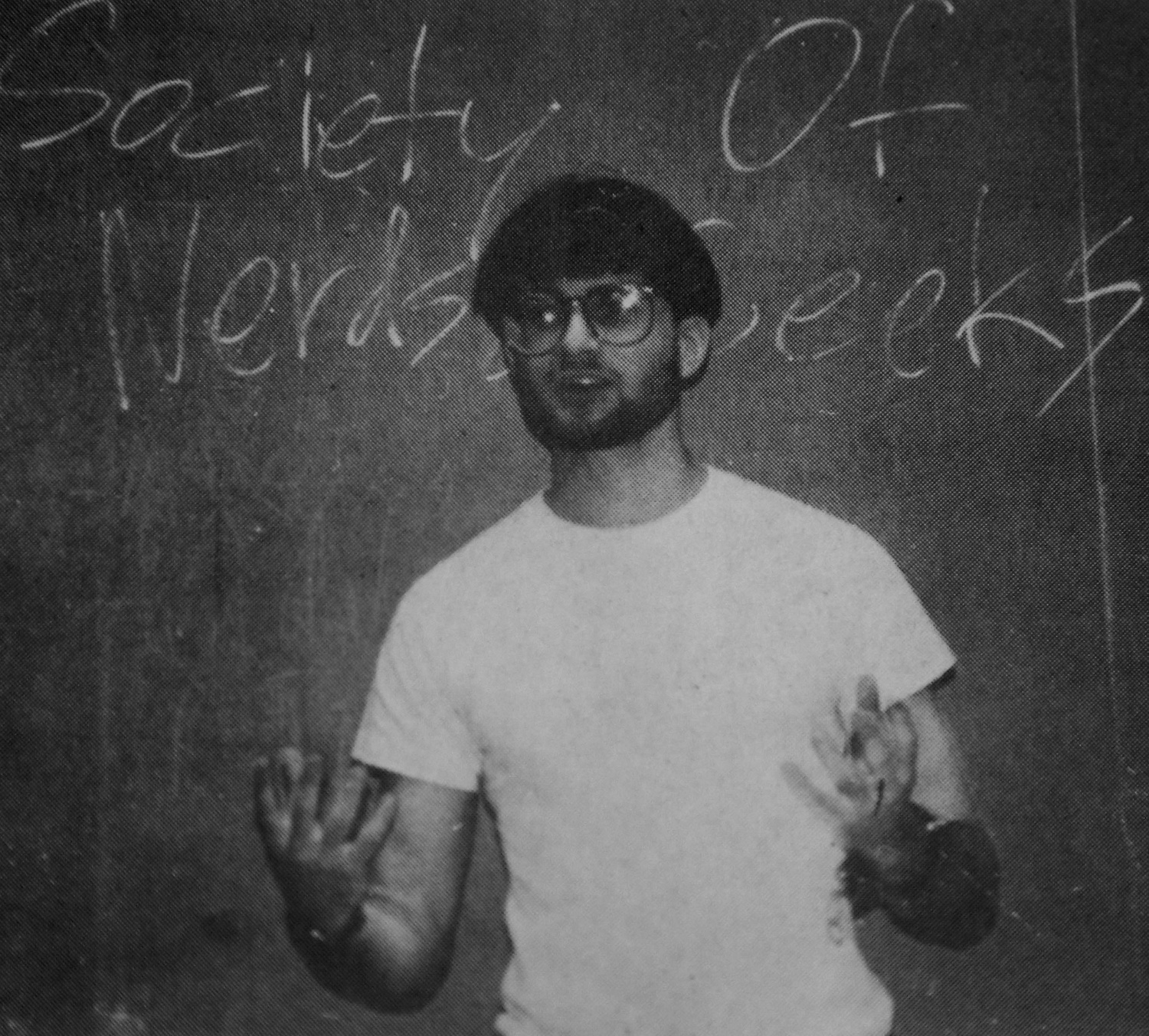
News
Garber Privately Tells Faculty That Harvard Must Rethink Messaging After GOP Victory

News
Cambridge Assistant City Manager to Lead Harvard’s Campus Planning

News
Despite Defunding Threats, Harvard President Praises Former Student Tapped by Trump to Lead NIH

News
Person Found Dead in Allston Apartment After Hours-Long Barricade

News
‘I Am Really Sorry’: Khurana Apologizes for International Student Winter Housing Denials
Nerds Joined Forces to Fight Anti-Intellectualism

Though watching the sunrise through the window of Lamont Library was not something a Harvard student could enjoy until the fall semester of 2005, Jeremy A. Kahn ’90-’91 envisioned something like the Lamont all-nighter over two decades ago. Having a 24-hour library was one of the main goals of the Harvard Society of Nerds and Geeks, a group Kahn formed during the ’89-’90 school year.
The idea for the group, which Kahn said he envisioned as a combination of social club and advocacy group for campus intellectuals, came to him in the summer of 1989. In October, Kahn held the first meeting of the group, which would come to be known as SONG.
According to an article published in The Crimson on Oct. 17, 1989, Kahn was “pleasantly surprised” when 19 people showed up to the meeting—only 10 were needed for the University to approve the charter—and SONG was formed.
"This is for real,” said Kahn at the time, according to The Crimson. “We must encourage the outside world to take more notice of nerds and geeks and to recognize our value."

Those interviewed for the 1989 article, however, were not fanatical with enthusiasm. Allon G. Percus '92 told The Crimson at the time that he went only because he “didn't have a problem set to do tonight, and I couldn't think of anything better to do.” Another attendee, Gloria K. Park ’91, showed up because she thought it was a joke put on by the Lampoon, according to the same article.
Among the initial ideas tossed around at the meetings were a computer program to match study partners, weekly protests outside of Widener or the Science Center, a “procrastination hotline” to help students during exam period, a 24-hour library, and extended schedules for shuttles to the bio labs for pre-med students.
SONG always had a light-hearted side. Among the proposals were party breaks—as opposed to the more conventional study breaks—and various other BYOB, or “Bring Your Own Book,” events.
Under the guidance of SONG’s graduate student adviser and co-founder Leonid M. Fridman ’85, however, the group would broaden its efforts to fighting what Fridman and others perceived as an anti-intellectual environment at Harvard and in the U.S. in general.
“I wanted to encourage [Kahn] to form a social network, so to speak, but I had an ideological axe to grind, so I thought that [SONG] would be a good combination of the two,” said Fridman, who was a resident tutor in Mather House at the time. “I had some thoughts about anti-intellectualism, and I thought that that would be a good marriage, to have some ideology behind a social club.”
Using the media to change attitudes around intellectualism would become central to SONG’s existence. According to an editorial piece in The Crimson published in January 1990, fewer than four months after its founding SONG had received coverage from the Wall Street Journal, the New York Times, and even CBS Morning News.
Fridman and SONG certainly didn’t shy away from the attention. In a Crimson op-ed Fridman wrote that SONG “plead[s] guilty” to allegations of publicity-seeking, attributing the explosion in interest for SONG to a broader nation-wide concern about anti-intellectualism. Indeed, the day after that piece in The Crimson, the New York Times published an op-ed by Fridman that he called his “nerd manifesto.”
Originally penned as a description of the group written to satisfy the Harvard bureaucracy—in addition to the 10 signatures, a description of purpose was needed for the charter—Fridman said that he liked what he wrote and eventually faxed it to the New York Times, which published it.
“Usually the New York Times doesn’t publish too many unsolicited op-ed pieces, so there was a lot of media coverage because it clearly resonated culturally with many people about issues of education and values,” said Fridman.
Despite its defense of the purely nerdy, SONG’s membership was far from limited to those who spent every waking moment ensconced in a dense book. Gregory P. Gicewicz ’89-’90 was both a member of SONG and captain of the football team. In a piece Harvard magazine published in 1990, he spoke about the pressure to be “anti-academic.”
“Instead of our role models being athletes, maybe they should be straight-A students,” Gicewicz said at the time.
SONG’s alumni advisor, Paul M. Widerman ’83, an alternate for the U.S. 1984 Olympic wrestling team, was also a hybrid of nerd and jock culture.

“Clearly people have some conception of what nerds or geeks are supposed to look like. I don't look like that, but somewhere in my own mind I think of myself as one," Widerman told The Crimson in December of 1989.
Despite the immense amount of media coverage SONG received, the group dissolved soon after Kahn graduated. The group lasted for approximately one year, hardly even a blink in the context of Harvard’s centuries-long history. Indeed, through the haze of 25 years, it is hard for the former members of SONG to remember much beyond the publicity. Gicewicz and Fridman were unable to come up with the names of anyone else in the society, and Kahn only recalled one other member, Michael L. Hutchings ’93, a fellow mathematician who is now a professor at UC Berkeley.
Gicewicz believes, however, that SONG represented the beginning of a greater cultural embrace of academically passionate nerds and geeks. Citing famous nerds such as Elon R. Musk and Bill H. Gates (formerly ’77), Gicewicz and Kahn believe that nerd culture and intellectual passion have become much more revered over the past few decades.
“The ideal, in a way, is changing from this kind of Rhodes Scholar ‘Renaissance man’ or the all-around athlete scholar,” said Kahn. “There is a sort of movement toward really doing what you believe in, doing what you want to do and really kind of an admiration for single-mindedness.”
While SONG has long since disappeared, its legacy lives on among current undergraduates. Aaron A. Slipper ’18, an avid mathematician, estimates that he is in Lamont Library from 10 p.m. to 4 a.m. on a typical weeknight. When Slipper learned about SONG, he was thrilled.
“We should revitalize [SONG] and petition for a 24/7 library...so that on the weekend when a good portion of people are out partying, the virgins can continue to use the glorious facilities of Lamont to be nerds and geeks,” said Slipper.
.
Want to keep up with breaking news? Subscribe to our email newsletter.
